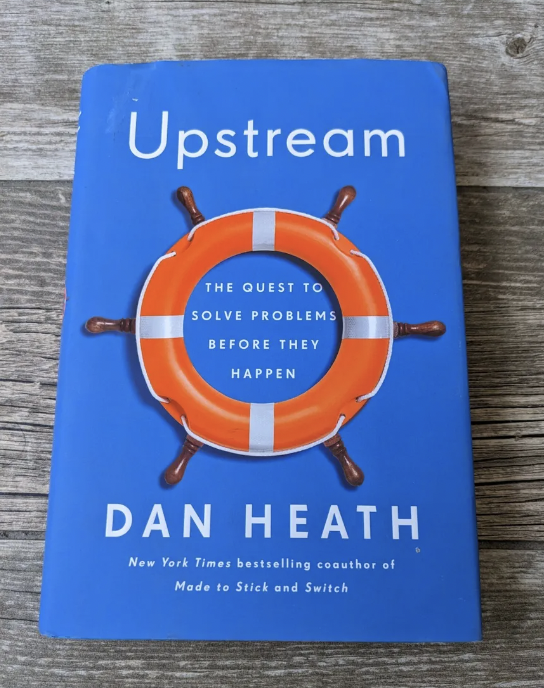I found out about the latest Dan Heath book from Singlewire’s Head of Customer Success. He was raving about it. The book is called Upstream: The Quest to Solve Problems Before They Happen and just like all of the Chip & Dan Heath books, it did not disappoint. The book begins with this parable:
You and a friend are out fishing when suddenly you hear a child yelling in the river. They are drowning and both of you quickly jump in and save the child, pulling him to safety on shore. You’re elated and tired, but you don’t have much time before you hear yet another child yelling in the river. They are drowning, then another comes and another. You’re barely keeping up with saving all of the children when your friend gets out of the water and starts to head upstream. “Where are you going?” you yell. You can’t do this on your own. And your friend replies, “I’m headed upstream to find the guy who’s throwing all of these kids in the river.”
Your friend is right, of course. Stopping the problem before it starts is the optimal way to handle this situation.
Barriers to Upstream Thinking
The second story in the book really hit home for me. It was a story about Expedia’s customer support team. They’d been taking millions of calls non-stop from customers right after the customer had booked a trip. Upon closer inspection a cross-departmental team of employees found that most of these customers were simply calling to get a copy of their itinerary. Posting the itinerary in their profile and making a few changes to the ordering system to ensure the itinerary emails got to customers in the first place wildly reduced the call volume. It was that simple, but it took a long time to figure out. Why did it take so long to think of the solution? Well, there are a few common barriers to upstream thinking and they are:
- Problem Blindness – People just aren’t seeing what the problem is.
- A Lack of Ownership – It’s no one’s job to fix the problem.
- Tunneling – There’s so much going on that no one has the time to do anything but short-term, reactive thinking.
Seven Questions for Upstream Leaders
The rest of the book discusses seven good questions that we should ask ourselves in order to “get upstream”, to stop problems before they start or become big problems. They are:
- How will you unite the right people?
- How will you change the system?
- Where can you find a point of leverage?
- Where will you get early warning of the problem?
- How will you know you’re succeeding?
- How will you avoid doing harm?
What We’re Doing at Singlewire
The Expedia story hit way too close to home for me. Our support team is currently drowning in calls, despite growing in size tremendously over the last year. I realized that we have all three of the upstream problems. We have problem blindness in that we just don’t have a sense for which, specific problems are causing so many calls. There is a lack of ownership in that all of our executives, of course, want to reduce calls, but it’s not exactly our job to reduce calls. We have a lot of other, higher priority goals at the moment. And we have tunneling in that there’s so much to get done that we do the next best thing, but that, many times, ends up being reactionary. Many of our fixes are short-term band-aids.
So, I pulled together a meeting with our Heads of Customers Success and Support. I run Product and Engineering, so I figured that between the three of us, if we took ownership over reducing calls, we would have at least some of the right levers to pull to do so. Our Head of Support shared a tremendous amount of data around the calls and we’re just now digging into it.
We plan to build two prioritized backlogs of work that we feel will make a difference:
- Low-hanging fruit – Issues we know about, that are relatively easy to fix, and will reduce calls.
- “Not our Problem” problems (NOPs) – We get a lot of calls asking for support for systems that integrate with our system, but for which we can’t provide support. So how can we make it easier for the customer to get their problem(s) solved?
It’s an experiment at this point, but I like where it’s going. In a future article, I’ll report out on how this Upstream team is doing!
